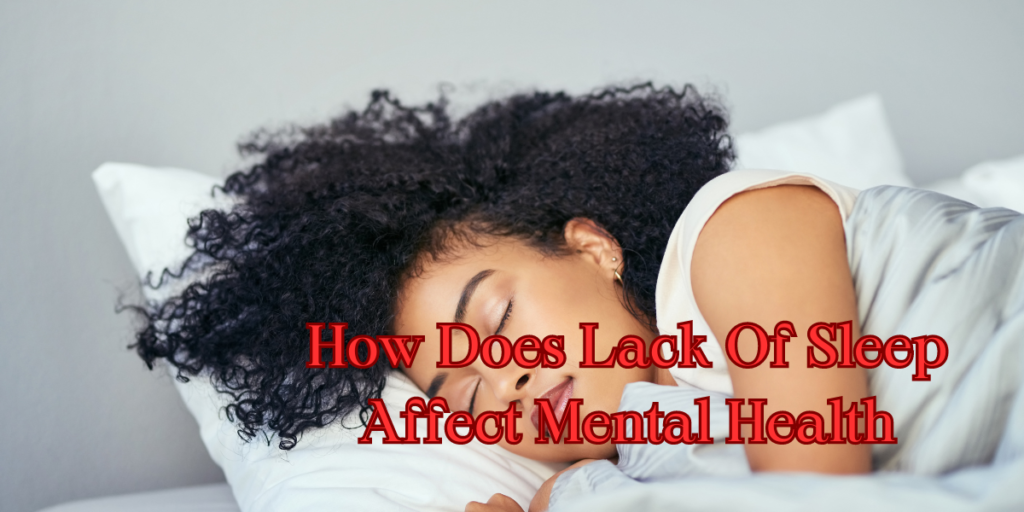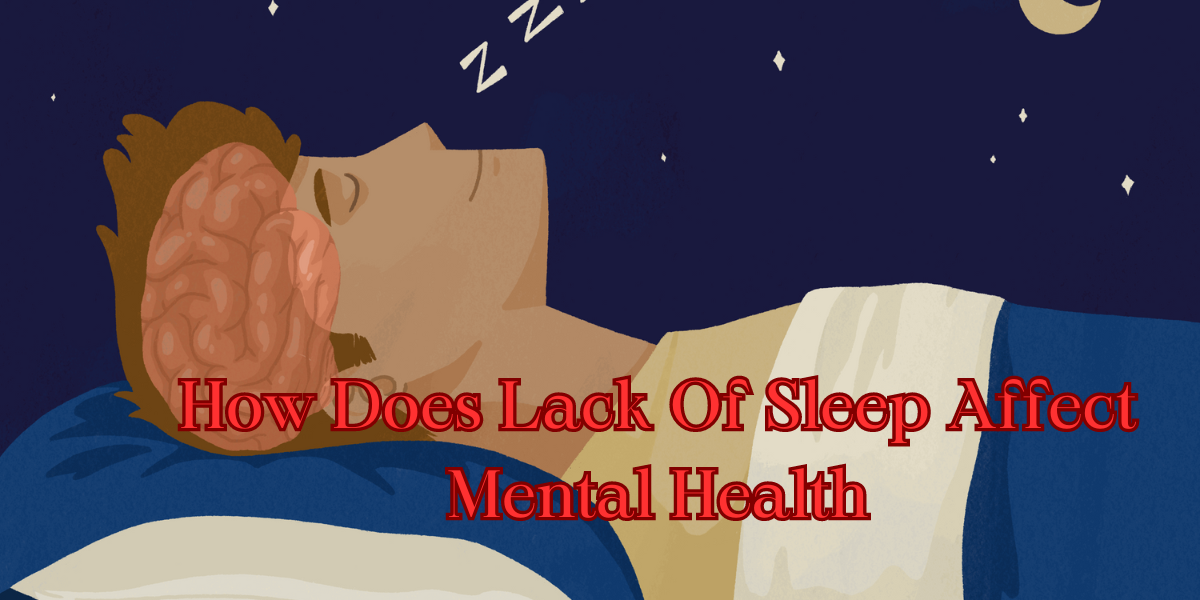How Lack of Sleep Affects Mental Health
The Link Between Sleep and Mental Health
How Does Lack Of Sleep Affect Mental Health lack of sleep is a common issue in our fast-paced world, affecting not only our physical well-being but also our mental health. The relationship between sleep and mental health is intricate and profound. In this article, we’ll delve into the effects of sleep deprivation on various aspects of mental well-being.
The Importance of Sleep
Sleep is not merely a state of rest; it’s a vital component of maintaining good mental health. Without adequate sleep, our cognitive functions, emotions, and overall mental state are compromised. Poor sleep patterns can lead to mood swings, increased anxiety, and even more severe mental health conditions like depression and bipolar disorder.
The Psychological Impact
Sleep deprivation can have a severe psychological impact. It can impair memory, decision-making, and problem-solving abilities. When you don’t get enough sleep, you may find it challenging to focus, control your emotions, and even handle stress. These factors can contribute to a decrease in overall mental well-being.
The Biological Connection
Beyond psychological effects, the lack of sleep also affects us on a biological level. Sleep deprivation can lead to an increase in stress hormones and inflammation, both of which can exacerbate mental health issues. It can also weaken the immune system, making you more susceptible to various illnesses, further affecting your mental health.
Tips for Better Sleep
Improving your sleep quality is essential for your mental well-being. Some effective strategies include maintaining a consistent sleep schedule, creating a comfortable sleep environment, and avoiding caffeine and electronic devices before bedtime. By incorporating these habits, you can significantly enhance your sleep quality.

Seeking Professional Help
If you find that sleep deprivation is severely impacting your mental health, it’s crucial to seek professional help. Mental health professionals can provide therapies and treatments to address sleep-related issues and their impact on your psychological well-being.
In conclusion, the relationship between sleep and mental health is undeniable. Lack of sleep can adversely affect various aspects of your psychological well-being, from mood to cognitive function. To safeguard your mental health, prioritize sleep and establish healthy sleep patterns. Remember, a good night’s sleep is the foundation for a sound mind.
Men’s Health:
Men’s health encompasses a wide range of physical and mental well-being concerns. Men are more prone to certain health issues, such as cardiovascular diseases, prostate problems, and low testosterone levels. These issues can have significant consequences on their overall quality of life. It’s essential for men to be proactive in managing their health by adopting a balanced diet, regular exercise, and routine health check-ups. By taking care of their physical well-being, men can reduce the risk of chronic illnesses and Men’s Health improve their mental health in the process.
Women’s Health:
Women’s health is equally important and complex. They face unique challenges such as reproductive health, pregnancy, and hormonal fluctuations throughout their lives. Maintaining women’s health often involves regular gynecological visits, breast health screenings, and a focus on nutrition. Mental health is also intricately connected to women’s well-being, with conditions like postpartum depression and menopause-related Women’s Health mood swings needing careful attention. Women should prioritize self-care and seek professional support when necessary to address their mental health concerns.


